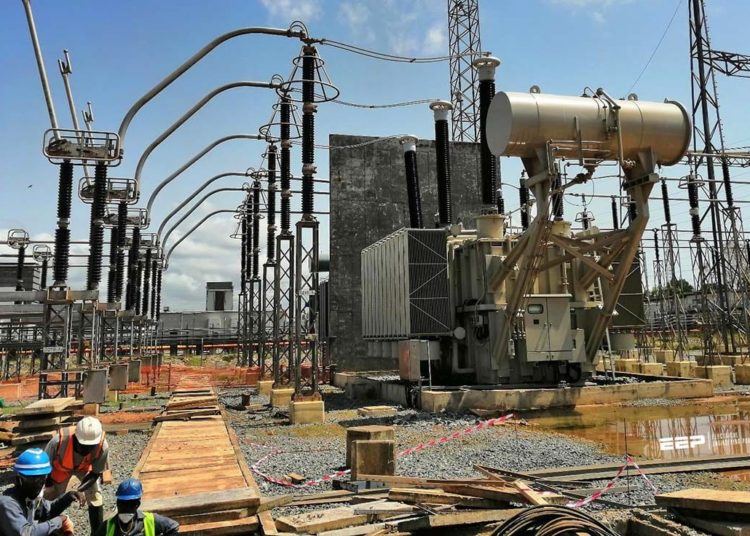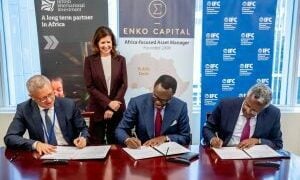Nigeria’s Energy transition drive is currently attracting much private investments and multinational cooperation such that enough energy and efficiency in the productive sector would be guaranteed.
The federal government is expanding gas infrastructure to create jobs and improve efficiency in the manufacturing sector, as it develops policy that will help the country maximise potentials inherent in the midstream sector of the oil and gas industry.
Already, there are ongoing partnerships and collaborations to improve the country’s Industrial Energy Performance (IEE) and Resource Efficient Cleaner Production (RECP) through Programmatic Approaches and the Promotion of Innovation in Clean Technology Solutions.
The project is designed to specifically accelerate the adoption of industrial energy efficiency (IEE) and to improve enterprise environmental performance through the mainstreaming of ISO50001 compliant Energy Management Systems (EnMS) and Industrial Energy Systems Optimization (ESO); under the wider umbrella of Resource Efficiency and Cleaner Production (RECP) best practices and innovative approaches within selected small, medium and large scale industrial enterprises in Nigeria.
Since the mid-1990s, the United Nations Industrial Development Organization (UNIDO) and the United Nations Environment Programme (UNEP) have collaborated to foster the global uptake of Resource Efficient and Cleaner Production (RECP). Under the joint flagship RECP Programme, sponsored primarily by the Government of Switzerland, UNIDO and UNEP have responded to countries’ growing demand for help with the delivery of RECP services to industries by assisting organizations — especially small and medium-sized enterprises, governments, civil society, research institutions and related stakeholders in over 60 developing and transition economies.
In practical terms, RECP entails the continuous application of preventive environmental strategies to processes, products and services in order to increase efficiency and reduce risks to humans and the environment.
RECP addresses the three sustainability dimensions individually and synergistically: and they include, heightened economic performance through improved productive use of resources, environmental protection by conserving resources and minimising industry’s impact on the natural environment, and social enhancement by providing jobs and protecting the wellbeing of workers and local communities.
Just recently, the federal government through the Nigeria Sovereign Investment Authority (NSIA), has agreed with key organisations in Africa to mobilise funds to accelerate green infrastructure projects in the continent.
The letter of intent for the capital mobilisation was signed by the African Development Bank, Africa50 and newly launched African Sovereign Investor Forum (ASIF), for green and climate resilient infrastructure projects across Africa.
The three entities will work together to galvanise financing and to drive the development of skills and expertise within the infrastructure sector.
The signing took place in Rabat, Morocco during an event to launch the Africa Sovereign Investors Forum. The newly formed platform will accelerate coordination to mobilise patient capital for the continent’s development.
Ten African sovereign investors have already agreed to set up the Forum.
The signatories are Nigeria Sovereign Investment Authority (NSIA), Agaciro Development Fund of Rwanda, Fonds Souverain de Djibouti, Fonds Gabonais d’ Investissements Stratégiques (FGIS), Fonds Souverain d’Investissements Stratégiques (FONSIS) of Senegal, Fundo Soberano de Angola (FSDEA), Ghana Infrastructure Investment Fund (GIIF), Ithmar Capital Morocco and The Sovereign Fund of Egypt (TSFE).
Africa50 CEO, Alain Ebobissé signed for his organisation; AfDB vice-president for Private Sector, Infrastructure and Industrialisation, Solomon Quaynor, signed on behalf of the AfDB; and Ithmar Capital CEO, Obaid Amrane, who will serve as the inaugural chair of ASIF, signed on the new initiative’s behalf.
Ebobissé said: “this is an important step to building strong collaboration between the right stakeholders to meet the substantial infrastructure financing needs of Africa. We must make key regional infrastructure projects attractive and bankable for both global and African private investors and today’s signing will go a long way to address the continent’s infrastructure deficit.
“It is therefore important that we leverage the strength of the African sovereign wealth funds on the continent, who manage significant domestic savings, to drive the growth of Africa’s economies through the development and successful implementation of strategic infrastructure.”
Quaynor said the AfDB’s partnership with ASIF and Africa50 would enable stronger collaborations on project development and co-financing, mobilisation of capital to fund resilient, green and sustainable infrastructure and identification of investment opportunities to promote Africa’s infrastructure and industrialisation.
“This is a key part of the Bank’s strategy to harness the estimated $2 trillion of assets under management from African institutional investors including sovereign wealth funds, pension funds and insurance companies for the continent’s infrastructure and industrialisation,” he said.
Amrane explained that ASIF’s main objective is to accelerate the development of investment opportunities and to mobilise patient capital. To him, “as sovereign investors, we see strong complementarities with African Development Bank and Africa50, especially that our visions are aligned with regard to project preparation and capital mobilisation.
pleased today to formalise ASIF, AfDB and Africa50’s mutual desire to collaborate together, for we have a common objective to foster investment in climate resilient projects, among others, according to our respective mandate.”





